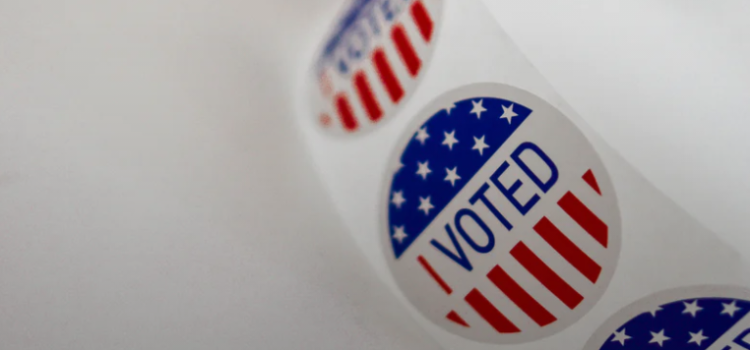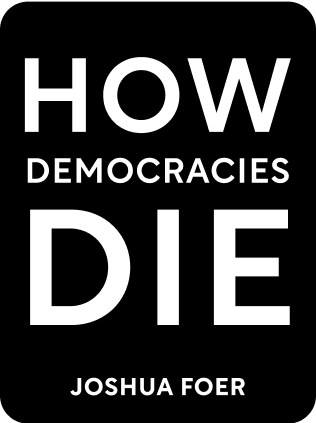

This article is an excerpt from the Shortform book guide to "How Democracies Die" by Steven Levitsky and Daniel Ziblatt. Shortform has the world's best summaries and analyses of books you should be reading.
Like this article? Sign up for a free trial here .
What are democratic norms? What are the two main norms that dictate how governments operate?
Democratic norms are an important part of how political systems govern. They help keep everything operating smoothly, and ensure that systems don’t collapse.
Read more about two major democratic norms, mutual tolerance, and institutional forbearance.
Essential Democratic Norms
We’ve already seen how authoritarians come to power through irresponsible political parties that abandon their gatekeeping role, and we’ve explored some of the main tactics used by authoritarians as they dismantle democracy.
But political parties exercising their gatekeeping function is not the only way that democratic systems maintain themselves. In this chapter, we’ll explore some of the other guardrails that keep democracy from backsliding into authoritarianism—and what happens when political actors decide to remove those guardrails.
The Power of Norms
Constitutions and written rules are not, by themselves, enough to protect democracy. There is always potential for political leaders to act in bad faith in selectively interpreting the constitution to suit their own agenda. They can remain within the letter of the constitution, while violating its spirit. Worse, anti-democratic measures might still bear the stamp of technical legality, creating the veneer of democratic legitimacy for acts that are actually grave threats to representative government.
In fact, it is political norms, not laws, that provide the best protection for democracy. Democratic norms are the unwritten rules that govern political conduct. When political actors adhere to norms, they are agreeing to engage in political competition according to a shared understanding about what is and is not acceptable. Even if some act of extreme aggression against one’s opponents is technically permitted by the written rules, responsible politicians do not engage in such conduct, lest they undermine the proper functioning of the democratic system. It is useful to think of norms as guardrails that prevent political competition from getting too intense or the stakes of elections from getting too high, thus turning every election contest into a winner-take-all battle that justifies winning at any cost.
For the purposes of our analysis, there are two democratic norms that deserve special consideration—mutual toleration and institutional forbearance.
Mutual Toleration
In a democratic political system, mutual toleration is the idea that one’s opponents have a right to govern, as long as they win fair elections and agree to play by the system’s written and unwritten rules. If we look back to our rules for identifying authoritarians, it is closely tied to the second such rule—accepting the legitimacy of political opponents.
It means treating competitors as rivals, not enemies. They are people with whom you might have strong disagreements on matters of public policy, but their election does not constitute an existential threat to you or to the overall political system. Without mutual toleration, opponents may feel that they are justified in taking extraordinary steps to keep their enemies from attaining power.
The demise of democracy in Spain in the 1930s provides a good example of what can happen when political competitors abandon mutual toleration. After the establishment of the Second Spanish Republic in 1931, Spain was deeply afflicted by extreme political polarization. Ultra-Catholic conservatives on the right and socialists on the left viewed one another as mortal enemies and existential threats.
These were the sorts of disagreements and mutual hostilities that were impossible to resolve through the normal democratic process. After the fascist-aligned CEDA Party won the elections in 1933, centrist and leftist forces refused to accept the result. They formed their own parallel government and called for a nationwide general strike—extraordinary measures that greatly escalated political tensions.
This ushered in a dangerous tit-for-tat cycle, in which each move and counter-move hammered another nail into the coffin of Spanish democracy. The rightists responded to the general strike with a brutal and violent repression of their own. The country was in full-blown civil war by 1936, paving the way for the decades-long dictatorship of Francisco Franco.
Institutional Forbearance
The second crucial norm is institutional forbearance. Institutional forbearance is the unwritten rule that political actors will not weaponize their control of institutions to marginalize opponents or hamper effective day-to-day democratic governance—even if such behavior is technically allowed under the constitution.
We can look to the United States for a positive example of institutional forbearance. There was a longstanding American political custom of having presidents serve only two terms—a norm that lasted for over 150 years, from Washington to Franklin Roosevelt. Even popular two-term presidents who may well have won third terms had they chosen to run refrained from doing so, lest they violate what was widely considered an unwritten law. The norm was so strong that it was later codified into law by the 22nd Amendment to the US Constitution.
Mutual toleration and institutional forbearance reinforce one another. Parties that practice mutual toleration do not view their rivals as existential threats. Therefore, they believe they have less to fear from these rivals attaining power. Accordingly, they are less tempted to abandon institutional forbearance and play hardball against them. This refusal to play hardball, in turn, generates more goodwill and further strengthens democratic norms of mutual toleration. Thus, a virtuous circle develops that continually strengthens and reinforces democracy.

———End of Preview———
Like what you just read? Read the rest of the world's best book summary and analysis of Steven Levitsky and Daniel Ziblatt's "How Democracies Die" at Shortform .
Here's what you'll find in our full How Democracies Die summary :
- How shared norms are essential for preserving democracy
- Why the Trump presidency threatened those shared norms
- Why democracy goes beyond individual leaders and parties and must be a shared enterprise among committed individuals






